- Home
- Helen Humphreys
The Reinvention of Love Page 2
The Reinvention of Love Read online
Page 2
The story tastes of the man.
WHO SEES LOVE ARRIVING? Who can gauge the movements one person makes towards another? Movements so slight, so tentative that they are almost invisible.
It is impossible to watch love arriving, but it is abundantly clear when it has arrived.
I remember the moment perfectly.
At first when I visited the Hugos, I would make sure to go in the evening, when I knew that Victor would be home. In the early days, after I had reviewed his poems so favourably, after I had called him, in print, “a genius,” he had plenty of time for me. I would go to his house after supper and we would talk together long into the evening, about poetry and literature, about the passion we both felt for writing. Adèle was sometimes in the room, sitting sewing by the fire, often silent. Victor is prone to long monologues when he gets excited, and though she would sometimes try to say a few words, to join our discussion, he would talk right over her.
He would do this with the children too, swat them away if he was busy proclaiming—but he would also, if he wasn’t occupied, bend down with them to examine an ant in the grass. It was then that I envied him, when he casually laid a hand on his son’s head or looked with real interest at the drawing his daughter had brought to him. But he was cavalier with his family. He failed to recognize the gift they were and appreciated them only when it suited him.
One day I walked round after lunch to return a book I had borrowed, and I found Adèle alone with her young ones. She invited me to stay and I sat with her by the pond in the garden while the children buzzed around us. Without Victor’s presence, Adèle was more talkative, and I remember we had a very pleasant discussion about poetry. She invited me to come again, and so I started to visit in the afternoons, when I knew Victor would be out, as well as in the evenings, when I knew Victor would be in.
Adèle and I sat in the drawing room, reading to each other, or walked out with the children to the Jardin du Luxembourg, which was mere minutes away from her house. These were very pleasant excursions, and I was content to cultivate my friendship with Madame Hugo at the same time that I was enjoying a friendship with her husband. I never thought of my relations with Adèle as anything other than chaste until one day I came to her house in the afternoon and found her fixing the combs in her hair. She was standing in front of the big mirror in the drawing room and her back was to me. The combs weren’t staying in place. She was impatiently trying to stab her hair into submission when a comb fell out and her black hair cascaded down her back. It was that movement—that soft tumble, softer than water falling from a fountain—that released something in me. I cried out, just a small noise, as a child might make in her sleep. Adèle turned and saw me watching her, and it was as though we had just discovered each other for the first time. I cannot fully explain it. All I know is that I could not roll my feelings back up, twist them into position and secure them into a place of propriety. I was undone. Nothing could be the same.
Later, we sat in the garden, side by side, watching the children play. Adèle was telling me a story about a ring her mother had given her that she always wore on her right hand. I asked to see the ring, thinking that she would allow me to hold her hand while I looked at it, but instead she removed it from her finger and took my hand in her own. She slid the ring onto my finger. It fitted perfectly. We both looked down at it. After a few moments, I took the ring off my finger and gave it back to her. She returned it to her own hand. We said not a word.
I lingered as long as I could that day, but I couldn’t bear to have Victor return while I was there, and so I left well before supper. Adèle walked me to the door, then to the front gate, then out to the pavement. I turned and waved when I was halfway home, and she was still standing there, watching me walk down the street.
The next day I woke up relieved that I had not declared myself. I valued my friendship with the Hugos and did not want it disturbed. I would simply live with my new feelings for Adèle. There was no need to tell her about them or acknowledge them in any way. Things would remain as they were.
But I could not concentrate on my work that morning, and the moment I knew that the Hugos would be finishing their noon meal, I was hurrying up their front walk.
I found Adèle alone in the drawing room, sitting with her hands folded on her lap, staring out the window. She leapt up when she saw me. I didn’t even have time to announce myself. She was at my side, her hand on my arm.
“The children have gone to the gardens with Victor,” she said. “We don’t have long.” She led me up the stairs and along the hallway towards the bedroom she shared with her youngest daughter, little Adèle.
It felt wrong to lie on the bed where she must have sometimes lingered with Victor, so we lay down on the carpet. The curtains lifted at the window. Adèle put her hands up to my face and traced my forehead, the bones around my eyes, the line from my nose down to my lips. I closed my eyes. I thought that I would die, or that I had already died. I am an ugly man. No one had ever touched me like that.
Adèle rolled on top of me. Her dress rustled like autumn leaves. I could smell the dust in the carpet.
“My treasure,” she said. “My little one. I have been so lonely.” She kissed me. I opened my eyes.
IT IS AT THIS POINT in the story that I should tell you my secret. It is a secret I have borne all my life with shame and concealed from almost everyone. It is at this moment in the story, after all, that I would be forced to tell Adèle my secret.
But not yet. Oh, not yet.
Instead, I will tell you something about Victor.
Victor’s father was a general in Napoleon’s army. His mother, like mine, was the daughter of a sea captain. I thought these were romantic beginnings, but they weren’t noble enough for my vainglorious friend. He decided to make his own heraldry, designing a false family crest and having a signet ring made with his invented ancestral motto. Ego Hugo. No two words were more perfectly married than those two.
Victor was insatiable in all things, in all ways. And while this worked for him, it was hard on everyone else.
It was proving impossible for Adèle.
So when I did tell her my secret, that afternoon as we lay together on the floor in the room she shared with her youngest daughter, she was not shocked and surprised, as I thought she’d be.
She welcomed it.
BUT I AM GETTING AHEAD of myself. I am following not chronology but passion, rushing off to Adèle whenever I am able, forgetting that there are events in this love story that must be told.
The beginning of it went like this:
In my early days at the Globe, when I was only twenty-two, I was given a book of poetry to review, Odes et ballades by a Victor Hugo. There was much in it to admire, but also much that irked. The poet was heavy-handed, leaving nothing to subtlety. He revelled in the grotesque and then, strangely enough, put too much emphasis on the trivial. The balance was off. Sometimes he reverted to laziness, using ellipses instead of furthering a thought. But when he freed himself from his own tricks, the poetry soared. I was temperate in my review, but I did use the word “genius.” And I meant it.
At this time, I was living on the Rive Gauche at 94 rue de Vaugirard. The day after the review was published, I came home to find a calling card with an invitation from Monsieur Hugo in my letterbox. Coincidentally, Victor Hugo turned out to live just two doors away from me, at 90 rue de Vaugirard.
The next day I called on him in the evening. The Hugos resided in a small second-floor apartment above a joiner’s shop. There was the smell of sawdust in the stairwell. Also, the smell of dinner.
“My wife and I are just sitting down,” said Victor when he met me at the door. “Won’t you come in and dine with us?”
I had already eaten, had called at the Hugos purposefully late so I would be certain not to interrupt their meal. But it seemed rude to decline the invitation.
“I’d be delighted,” I said, and allowed him to lead me upstairs.
The apa
rtment was crowded but cozy. A fire burned in the grate and there were pleasing paintings and tapestries on the walls. Victor had married his childhood sweetheart, and this was their first real home together.
Madame Hugo rose when I entered the apartment. She was dark and tall, almost Spanish-looking. I must confess that apart from bowing to her in greeting, I didn’t pay her much attention during the evening. This is partly because she didn’t say anything at all during the meal, or afterwards, when the dishes were cleared and the Hugos and I sat by the fire. During dinner her attention seemed entirely taken up with her own thoughts, and after dinner she worked at her sewing, her head bent over her task, ignoring the spirited conversation between her husband and me.
But the larger truth is that it wasn’t Adèle’s silence that kept me from noticing her that first evening—it was my intoxication with the young poet. He was a few years older than I was but full of vitality and vigour, bounding up the stairs like a mountain goat as I puffed after him, my forehead damp with perspiration.
His dedication to poetry was absolute, and his gratitude to me was touching.
“Until your review,” he said, “I suffered such doubts.”
“But there will always be doubts, will there not?” I do not know of any gifted writer who does not suffer from a constant lack of confidence.
“Yes,” said Victor, reaching over and clasping my hand. “But now there will always be your wonderful review to buoy me up when my spirits are low.”
Even though I had eaten two dinners and felt a little queasy by the time I bid farewell to the Hugos just after midnight, I walked the short distance between our two houses in a state of elation. I had a new friend, and it seemed a perfect friendship. We were bound by common interests, lived a breath apart, and each could help the other to advance. I would publish reviews of Victor’s work, and he could assist me with my own tentative steps towards poetry.
What could be better?
Victor soon introduced me to his circle, a group known as the Cénacle. There were the poets Lamartine and Vigny, the painters Delacroix and Deveria, the young writers Mérimée, Dumas, and Alfred de Musset. And there was another critic, Gustave Planche. The group used to meet fairly regularly in the library of the Arsenal.
I must confess that I did not talk as much to the painters as to the writers, even in the small group at the Arsenal library. It was not that I was less interested in them. It was as it was when I first went to visit the Hugos at 90 rue de Vaugirard. I was not less interested in Adèle. I was just more interested in Victor.
Of the writers, I remember two in particular.
Alexandre Dumas’s father, like Victor’s, had served in the army under Napoleon. The stories of his father’s exploits were the basis for his own popular adventure stories, The Three Musketeers and The Count of Monte Cristo.
Dumas was fat and loud, alternately breathless and boastful, and frequently chased by creditors. He had a wife and many mistresses, spent money lavishly and foolishly, and made almost as much as he wasted. He was an infrequent participant in the Cénacle, but a chair was always left empty for him, as he was apt to rush in midway through one of our evenings, having just dodged a creditor or two on his way over to the library.
You never have to look further than a man’s life to understand his work.
Gustave Planche was a literary critic for the Revue des deux mondes. Like me, he had been a medical student before entering the world of literature. Later on, he would despise Victor’s plays as much as I did. We had a great deal in common, and as a result, we ignored each other completely. I was secretly afraid that he was a better version of me.
There we were, a small group of talented men, some of us young and some of us already in our prime. When Victor brought me into the Cénacle, he was the least famous among them, apart from the boy, Alfred de Musset. And yet one day, he would be the most famous of all.
I shouldn’t have to point this out, of course, but seeing how things have gone, I have to. When I first met Victor Hugo, it was I who was the more well known. I was the one who had the reputation.
We were such great friends, Victor and I. When the Hugos moved to nearby Notre-Dame-des-Champs, it seemed natural that I follow them there. You have only to look as far as his family to know with what high esteem I was held by him at the time. His first child, a son, was the embodiment of our friendship and was given the marriage of our two names—Charles Victor.
TO UNDERSTAND MY STORY, you must also understand the political turmoil in France at the time. In July of 1830, four years after I met Victor, there was a revolution. It lasted only three days, but it changed the country, and this city.
The infamous 1789 revolution, when we overthrew the monarchy, could still be tasted, perhaps, when King Charles X passed two wildly unpopular laws. The first, that a person could be put to death for profaning the Catholic Church. And the second, perhaps more unpopular, that citizens couldn’t rightfully inherit property if they, or those they were inheriting from, had been declared “enemies of the revolution.” The first revolution.
It is never a good idea to remind people that they have rebelled against a king before.
The press was outraged on behalf of the populace, and many vitriolic articles were published. Charles X then restricted freedom of expression for journalists and newspapers, proclaiming that a newspaper’s printing presses could be destroyed if the king decided what it was publishing was treasonous. The Globe, of course, was never really at risk of such consequences, as we were primarily a literary review. But I helped petition against the censorship. I collected signatures and attended rallies in the public squares.
The king—never a bright sort of man, in my opinion—chose to go boar hunting in the country at the point of greatest unrest in Paris. It was a hot July, and the rich were leaving the crowded, unsanitary city if they could.
There was still the taste of insurgence among Parisians. It was no great effort to organize, to fight, to bring down the monarchy in three short days. The shopkeepers closed their doors. As their printing presses were being demolished by soldiers, the editors of one newspaper were throwing freshly inked copies from the windows of their offices to the waiting crowd below.
There was the usual violence and destruction of property in the city, but thankfully no works of art were destroyed in the fracas, as had happened in the first revolution. In the end, Charles X abdicated and Louis-Philippe d’Orléans became our king. Restrictions were relaxed. Social reform was in the air. Peace returned.
But let me go back to Victor’s terrible play, which opened five months before the revolution. I can still remember every detail of that evening.
UNTIL THIS YEAR, no drama of romantic sensibility has ever been presented at the Comédie-Française, the Classicists noisily opposing the utterance of lines that deal with the flesh-and-blood nature of passion. Even the actors in Victor’s play aren’t happy with it. But all the controversy is selling out every house and making Victor rich. When Adèle and I arrive at the Comédie-Française for the evening performance of Hernani, we have to fight our way into the lobby.
Adèle has hooked her arm in mine and I clasp it tightly against me, for fear of losing her to the mob.
“It’s like this every night,” she says to me, her lips close to my ear. “Victor has never had such publicity.”
It is no different in the theatre hall. We have seats in the first balcony. I can look around and easily spot Victor’s new bohemian friends, with their long hair and dishevelled clothing. They are in strict contrast to the Classicists, the men stiff and starched, their top hats in their laps, the women gowned and bejewelled. There is shouting and hooting. Many of the bohemians are standing in the aisles, trying to intimidate the patrons as they take their seats.
“Why is there a smell of garlic and sausage?” I ask Adèle.
“Some of our supporters have been here since the afternoon,” she says, “in order to secure the seats. They’ve had to bring their supp
er with them.” She shifts closer to me, so that the sides of our bodies are touching. “Charles,” she says, “despite the pandemonium, I love how this feels.”
I know what she means. I had dressed slowly, dined hastily, come in a carriage to pick up Madame Hugo at her house. We rode to the theatre together, walked through the lobby like man and wife, have taken our seats as though it is the most familiar thing in the world to be out together of an evening. It is, in fact, the first evening we have done so, and time shakes out its splendid robes before us.
“Thank God for Victor’s verbosity,” I say. The play is five acts. What with the heckling, we could be here all night.
When the gas lights are dimmed, just before the curtain goes up, Adèle leans over and kisses me on the cheek. Such a simple gesture, and yet the most profound pleasure in the world.
What draws two people together? Is it recognition, shared sympathies? Is it merely an unguarded moment, when they are able to see each other without defences, without reserve? Can one fall into oneself through the attentions of a lover?
Love makes more questions than it answers. But I know this—in those moments with Adèle, I could not imagine feeling more than I did, being other than I was. I could not imagine a world outside our love. What I failed to recognize, perhaps, was that the world we inhabited made no space for us. This night at the theatre, watching Victor’s play, would be the only evening we would ever spend entirely together.
I already know, from many conversations with Victor and from attending an early rehearsal of the play, what Hernani is about.
The story takes place in sixteenth-century Spain. It has political overtones, but the drama is essentially a love triangle among the old, senile Don Ruy Gomez; the young nobleman, Hernani; and the woman they both desire, Doña Sol. Gomez is to marry Doña Sol, and Hernani is determined to stop the union, even though it has been contractually agreed upon and can’t be prevented. This particular cage is rattled constantly throughout the five acts of the play, and it grows tiresome to hear Hernani proclaim his love (yet again) to Doña Sol, and to hear her say (yet again) that she would rather die than marry Don Ruy Gomez. Everything hits the same note, and the melodramatic props—torches, disguises, vaults—don’t help matters.

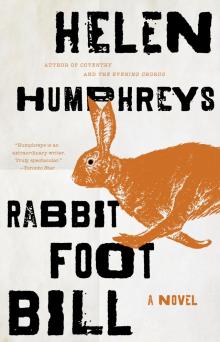 Rabbit Foot Bill
Rabbit Foot Bill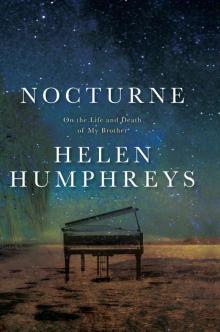 Nocturne
Nocturne The Ghost Orchard
The Ghost Orchard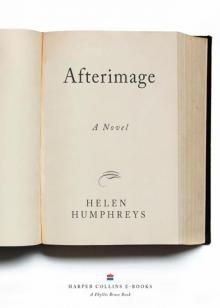 Afterimage
Afterimage The Frozen Thames
The Frozen Thames Coventry: A Novel
Coventry: A Novel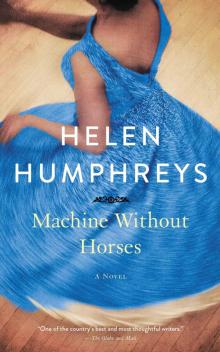 Machine Without Horses
Machine Without Horses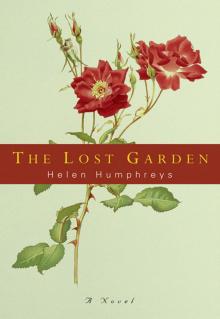 The Lost Garden: A Novel
The Lost Garden: A Novel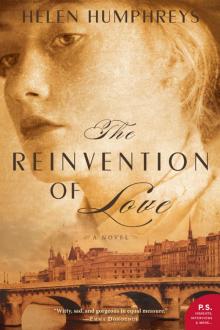 The Reinvention of Love
The Reinvention of Love Helen Humphreys Three-Book Bundle
Helen Humphreys Three-Book Bundle